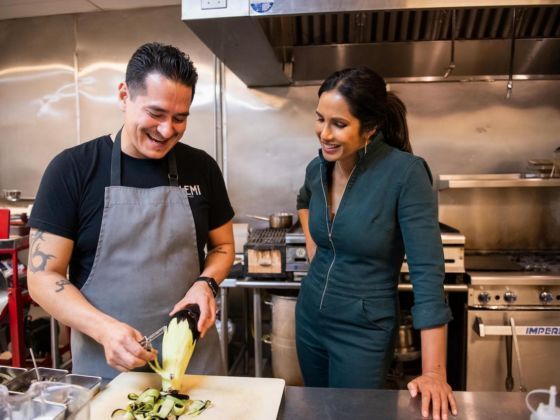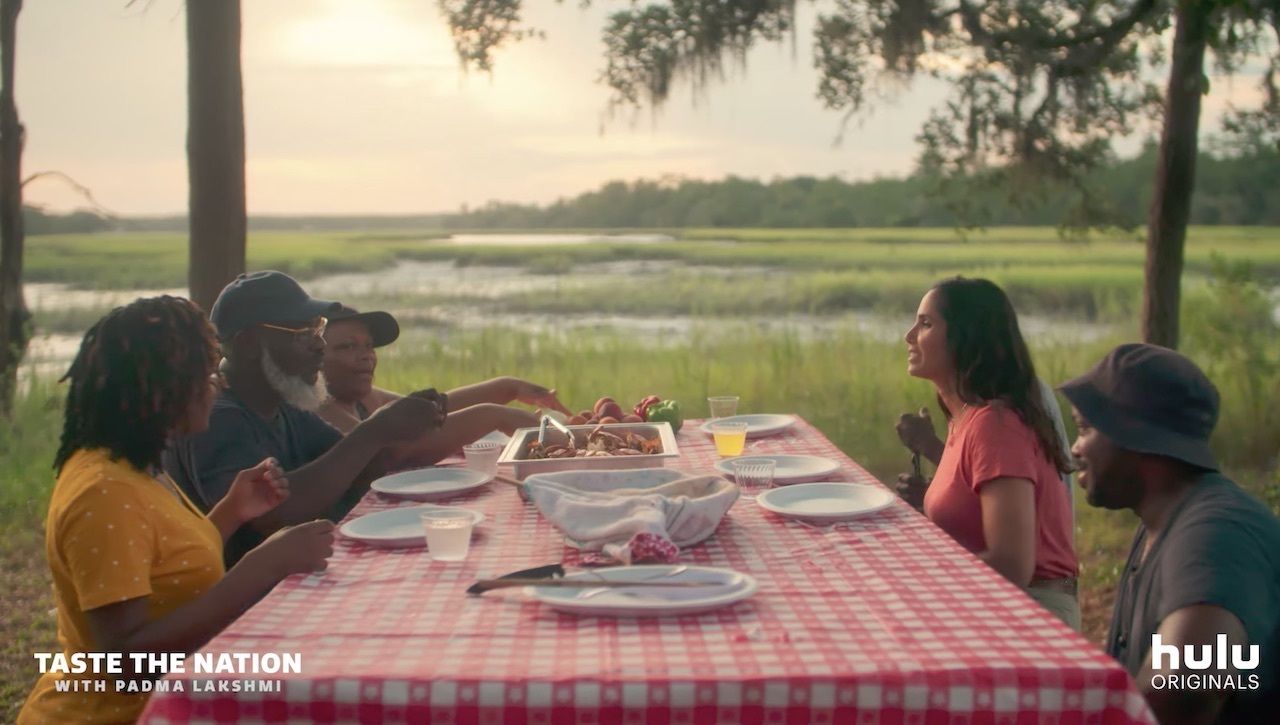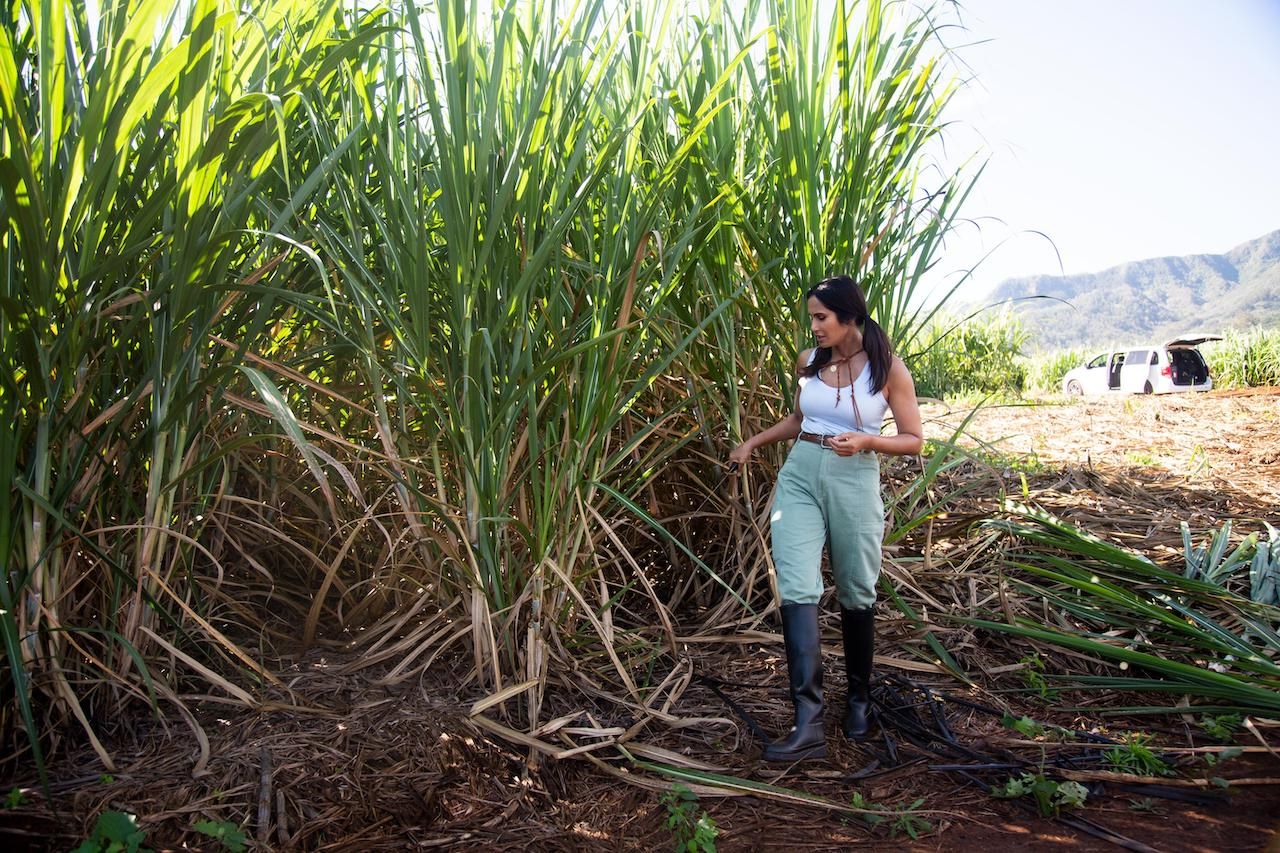Food is never just sustenance. Food tethers us to our ancestors; it tracks political upheaval. It guides communities through mourning, sustains them during activism and resistance. Food is comfort, joy, family, and connection — put another way, food is life. That is the message at the core of Padma Lakshmi’s latest endeavor, Taste the Nation.
Lakshmi, famous for her longstanding run as host of Top Chef, travels the country looking for the dishes that make up the pieces of the whole we call American cuisine. Told through the eyes of chefs, activists, and educators like Gina Núñez-Mchiri, Michael Twitty, and Felicia Ruiz, each story centers a certain dish (a familiar conceit in the world of food television) — burritos, pad thai, dosa, and poke to name a few. And it turns out that almost every single one can be traced back to communities of color: Enslaved West Africans who endured unspeakable atrocities, Native Americans from whom our government stole land, Japanese families forced into internment camps during World War II, Chinese workers banned from settling in America for 61 years. The story of American food, like the story of the country itself, is one intertwined with discrimination and colonialism.


